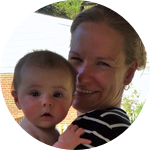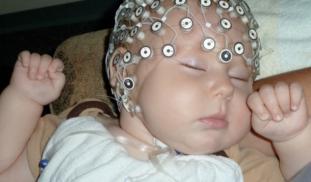Please wait...
About This Project
Infancy is an ideal time to study brain rhythms during sleep in humans. During the first year of life, infants' brains are rapidly changing. We’ve been perfecting our methods for two years and now need two additional E4 autonomic sensors to run a study with 15 infants, at three ages, characterizing the changes in two sleep brain rhythms: slow waves and sleep spindles, along with changes in autonomic sleep patterns, and cognitive, motor, and social-emotional development.

Browse Other Projects on Experiment
Related Projects
Brain dynamics in braille reading: Letters to language
Blind and low-vision readers read and write text using braille, a tactile system of raised dots. In this...
Mapping midlife minds: A study of women’s cognitive and mental health
Many women experience brain fog, memory lapses, anxiety, and mood swings during peri/menopause – yet we...
Developing a new evidence-based treatment for moderate to severe dementia
The World Health Organization calls for an increase in psychosocial interventions for dementia. While the...



